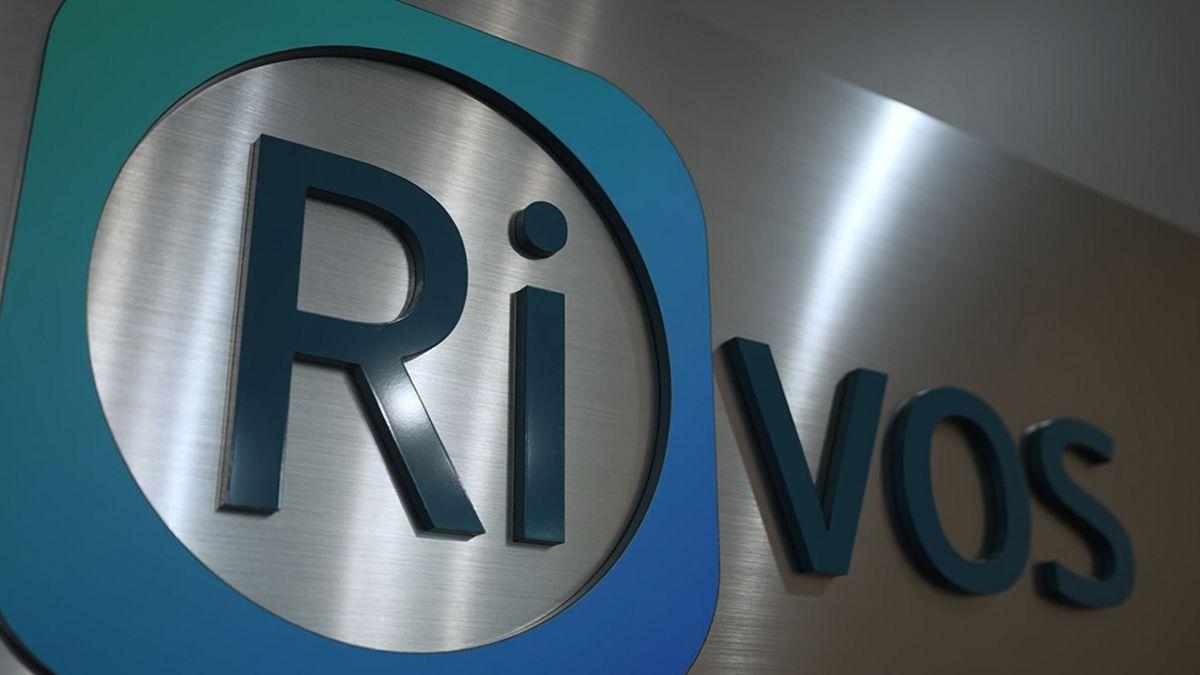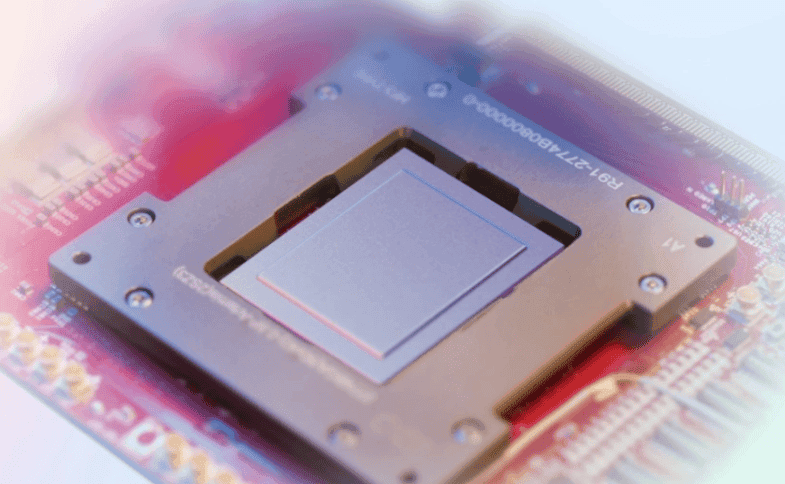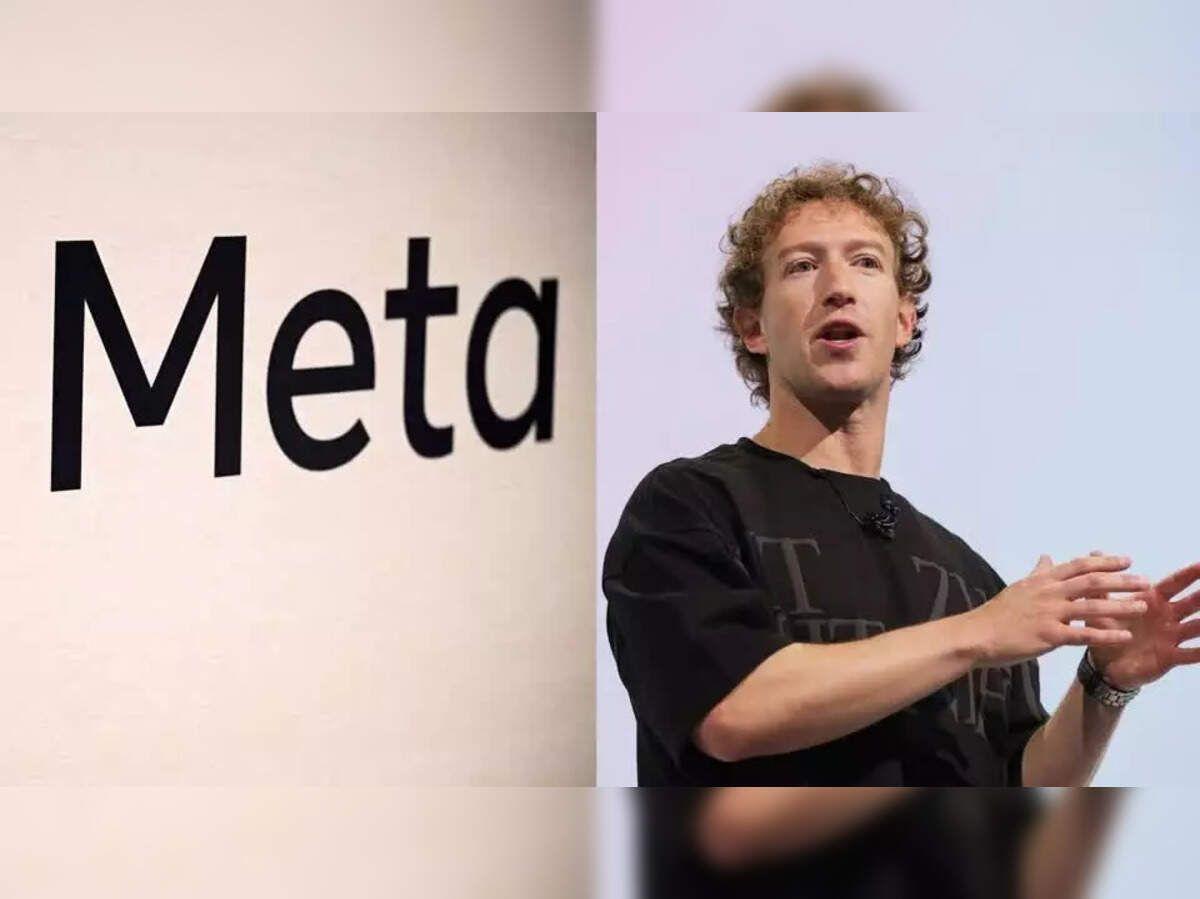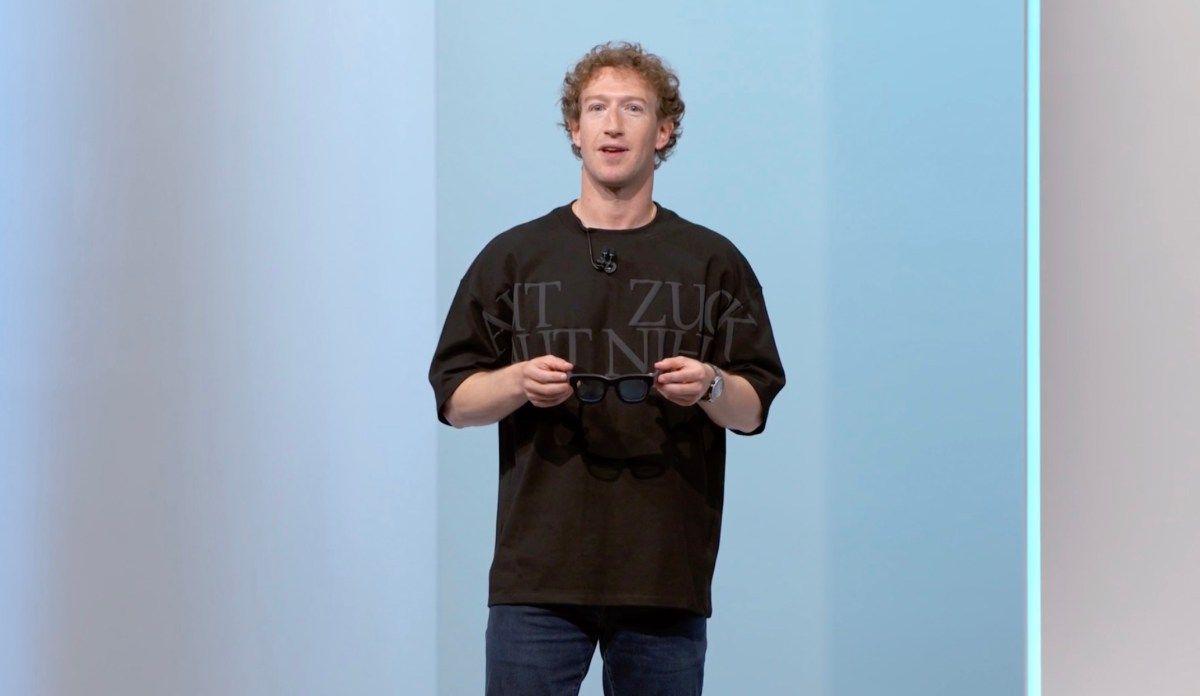Meta's AI Ambitions: Acquiring Rivos and Investing Billions in Compute Power
10 Sources
10 Sources
[1]
Meta reportedly buying RISC-V AI GPU firm Rivos -- acquisition to bolster dev team and possibly replace Nvidia internally
Meta's internal GPU development squad will soon add to its ranks, sources say. Meta is set to acquire RISC-V chip startup Rivos, in an effort to shore up Meta's own internal chip development teams and move past reliance on Nvidia GPU hardware. According to Bloomberg, the deal has not yet been made public, but has been confirmed by sources. Rivos is a "stealth" chip startup, focused on designing GPUs and AI accelerators on the RISC-V open standard. The company's IP includes SoCs and PCIe accelerators. Meta has long been working on its own custom in-house AI accelerators, in a project termed the "Meta Training and Inference Accelerator." The MTIA chip has been jointly designed with Broadcom, is likely based on RISC-V, and has been produced in TSMC's chip fabs. The Meta accelerator saw a round of tape-outs in March and has reportedly already been deployed in limited use across Meta's data centers in conjunction with Nvidia GPUs and AI accelerators. It's uncertain what the final deal with Rivos will look like. The startup recently claimed a $2 billion valuation in a recent funding round, likely putting its asking price somewhere in the 9-to-10-figure range. The company may not wish to be dissolved into Meta's in-house development team, which Meta supposedly wants for its new company buyouts. And of course, the rumored deal may not even go through, as we don't know what stage talks are in from the outside. If Meta does get its hands on Rivos, the company will be newly energized to produce one of the highest-profile RISC-V chips that the world has seen to this point. The RISC-V standard still has yet to reach the U.S. data center in a major way, currently typically seen in MCUs and IoT deployments, though recent announcements from China are bringing consumer tablets and laptops to the market. A RISC-V AI accelerator from Meta to replace the use of Nvidia H200s in-house would certainly be a huge swing for the developing instruction set. As Meta works to expand its push into AI, spurred on by Mark Zuckerberg's initiative for "personal superintelligence," it has reportedly been looking for new acquisitions to bolster its internal teams. Unnamed sources claim that CEO Zuckerberg has been unhappy with the slow pace of development on the MTIA project, with tape-out of its next generation still a long way out. In 2022, Apple sued Rivos for allegedly instructing 40 former Apple engineers to steal gigabytes of insider secrets from Apple's SoC teams. The two companies settled in 2024 after Rivos counter-sued Apple, alleging that Apple had attempted to strong-arm its employees into not leaving for the new company.
[2]
Meta Is Said to Acquire Chips Startup Rivos to Push AI Effort
Meta Platforms Inc. is acquiring chips startup Rivos Inc., according to a person familiar with the deal, part of an effort to bolster its internal semiconductor development and control more of its infrastructure for artificial intelligence work. Rivos is developing its own graphics processing unit, known as a GPU, which is the chip that powers most AI-related work. Meta already has a team internally building chips for AI development, known as the Meta Training and Inference Accelerator, but the company still spends billions each year on GPUs from external partners, including market-leading Nvidia Corp.
[3]
Meta to buy chip startup Rivos for AI effort, source says
Sept 30 (Reuters) - Meta (META.O), opens new tab is acquiring the chip startup Rivos, a source familiar with the matter told Reuters on Tuesday, as the social media company looks to bolster its in-house semiconductor efforts. The Santa Clara, California-based startup, which is backed by Intel (INTC.O), opens new tab CEO Lip-Bu Tan, is focused on designing chips based on the RISC-V architecture, an open-source alternative to the architectures made by Arm, Intel and AMD (AMD.O), opens new tab. The terms of the deal were unclear, according to the source. Meta and Rivos did not immediately respond to Reuters requests for comment. Meta has been one of Rivos' biggest customers and had been talking to the startup about a deal, a second source familiar with the matter said. The sources declined to be named as they were not authorized to discuss the information. Reuters exclusively reported in March that Meta was testing its first in-house chip for training AI systems as the company seeks to cut infrastructure costs linked to its spending on advanced AI tools. The Instagram and Facebook owner has spent heavily on sought-after AI chips from Nvidia. Rivos was seeking new funding at an over $2 billion valuation, The Information reported in August. Bloomberg News first reported on the potential deal. Reporting by Jeffrey Dastin and Krystal Hu in San Francisco and Jaspreet Singh in Bengaluru; Editing by Arun Koyyur Our Standards: The Thomson Reuters Trust Principles., opens new tab * Suggested Topics: * Artificial Intelligence Jeffrey Dastin Thomson Reuters Jeffrey Dastin is a correspondent for Reuters based in San Francisco, where he reports on the technology industry and artificial intelligence. He joined Reuters in 2014, originally writing about airlines and travel from the New York bureau. Dastin graduated from Yale University with a degree in history. He was part of a team that examined lobbying by Amazon.com around the world, for which he won a SOPA Award in 2022. Krystal Hu Thomson Reuters Krystal reports on venture capital and startups for Reuters. She covers Silicon Valley and beyond through the lens of money and characters, with a focus on growth-stage startups, tech investments and AI. She has previously covered M&A for Reuters, breaking stories on Trump's SPAC and Elon Musk's Twitter financing. Previously, she reported on Amazon for Yahoo Finance, and her investigation of the company's retail practice was cited by lawmakers in Congress. Krystal started a career in journalism by writing about tech and politics in China. She has a master's degree from New York University, and enjoys a scoop of Matcha ice cream as much as getting a scoop at work.
[4]
Meta exploring major acquisition of chip startup Rivos in a strategy to boost its internal AI silicon program
Chip acquisitions could be critical for scaling AI training and inference and Rivos has RISC-V expertise Meta is reportedly looking to acquire chip startup Rivos in a deal aimed at strengthening its in-house semiconductor program and giving the company more control over its AI infrastructure and greater independence from Nvidia. Although Meta already has its own chip project, Meta Training and Inference Accelerator (MTIA), like all hyperscalers it still spends heavily on GPUs from Nvidia - a dependence which has become costly as the company scales up its AI ambitions. Reporting on the deal, Bloomberg says the terms of the acquisition have not been made public, but in April 2024, Rivos raised $250M in Series A.3 funding to fuel its global growth, and any sale price is expected to be in the high nine to ten figure range. Bloomberg says some Meta executives have been dissatisfied with the slow pace of internal chip work, leading its leadership to explore ways to speed up progress, including external acquisitions. In 2024, the company tried to acquire Korean chip startup FuriosaAI for $800 million, roughly $300 million over the startup's estimated market value, but ultimately failed because of a disagreement with the planned direction post-acquisition. Not so long ago Meta was all-in on the Metaverse (to the point of even changing the company's name) but now Chief executive Mark Zuckerberg says AI is the company's top priority, with spending commitments reaching tens of billions of dollars on infrastructure and talent. If the Rivos deal goes through, Meta will benefit from a team capable of building high-profile RISC-V chips, which could be tailored for its AI workloads. Although Rivos seems like a good fit for Meta, the startup has faced some controversy in the past. In 2022, Apple accused the company of stealing trade secrets via former employees, a dispute that was resolved last year after counterclaims were filed. Meta's acquisition talks show the social media's giant's determination to bring more of its AI supply chain under its own roof, but whether the deal goes through or not remains to be seen.
[5]
Meta inks $14.2bn deal with CoreWeave for its compute power
The social media giant also plans to acquire chip start-up Rivos to strengthen its own semiconductor abilities. Leading cloud compute provider CoreWeave has signed a deal to supply Meta with up to $14.2bn in computing power. The deal is set to run through to December 2031, with the option of extending it to 2032, the company said in a filing yesterday (30 September). As per the agreement, CoreWeave will provide Meta with access to Nvidia's GB300 systems, the company CEO Michael Intrator told Bloomberg. "They loved our infrastructure in earlier contracts and came back for more." The financial publication was the first to report on the news. "The agreement underscores that behind every AI breakthrough are the partnerships that make it possible," a CoreWeave spokesperson told publications. CoreWeave stocks jumped up by nearly 15.9pc after the news was announced, while Meta stocks declined by almost 2pc. In March this year, CoreWeave signed an $11.9bn deal with OpenAI to power the AI giant as it trained its models. That deal was expanded in May with an additional $4bn. Just days earlier, the agreement was once again expanded by $6.5bn - bringing the total contract value to around $22.4bn. Meanwhile, Meta CEO Mark Zuckerburg has honed in on 'superintelligence' as his company spends billions on improving its AI capabilities. Meta plans to spend up to $72bn on AI infrastructure - just in 2025. The company plans on purchasing chip start-up Rivos to strengthen its own semiconductor abilities. The news was confirmed by Yee Jiun Song, Meta's VP of engineering on LinkedIn. Song said that the acquisition will help expand on the Meta Training and Inference Accelerator (MITA), Meta's in-house AI accelerator chips. Just this year, Meta invested $14.3bn into Scale AI for a reported 49pc stake in the start-up that provides specialised data to train AI and evaluates models and applications. The company also acquired Play AI, which uses AI to generate human-sounding voices, and WaveForms AI, a start-up that focuses on AI that can recognise and replicate emotion in audio, all in recent months. Aside from acquiring businesses, Meta has been collecting AI leaders from across competitors to join its team - including Scale AI CEO Alexandr Wang, Apple's AI lead Ruoming Pang and Safe Superintelligence co-founder Daniel Gross among others. Superintelligence is viewed with apprehension by experts, who raise concerns around safety and guardrails. However, Zuckerberg views the opportunity with considerable optimism. In a recent essay, he wrote, "I am extremely optimistic that superintelligence will help humanity accelerate our pace of progress." He said that "personal superintelligence" will have an "even more meaningful impact on our lives" than AI. "Meta's vision is to bring personal superintelligence to everyone. We believe in putting this power in people's hands to direct it towards what they value in their own lives." It is unclear, though, how Zuckerberg aims to manage these unclear and lofty goals. Don't miss out on the knowledge you need to succeed. Sign up for the Daily Brief, Silicon Republic's digest of need-to-know sci-tech news.
[6]
Meta reportedly acquires startup Rivos to accelerate work on its in-house AI chips - SiliconANGLE
Meta reportedly acquires startup Rivos to accelerate work on its in-house AI chips Meta Platforms Inc. has reportedly acquired an artificial intelligence chip startup called Rivos Inc. as it looks to boost its in-house semiconductor design efforts and reduce its reliance on third-party hardware. Rivos, based in Santa Clara, California, is said to be focused on designing chips based on the open-source RISC-V architecture, which is an alternative to Intel Corp.'s and Advanced Micro Devices Inc.'s x86 architecture. The terms of the acquisition are unclear, according to anonymous sources that spoke to Bloomberg and Reuters, and neither company would comment on the report, although it has apparently been confirmed by Meta Vice President of Engineering Yee Jiun Song in a post on LinkedIn. Song said Meta will leverage Rivos's expertise to expand work on the Meta Training and Inference Accelerator, or MTIA, which is its family of custom-built, in-house AI accelerator chips. "I'm excited to share that Meta intends to acquire Rivos Inc. to help us accelerate our vision for scalable compute to power our AI ambitions," he wrote. "Rivos has deep technical expertise and experience designing and developing the full stack of AI systems." Rivos, which does not currently sell any products, was earlier said to be developing chips that are optimized for AI inference workloads. On its website, it states that the chips will combine a graphics processing unit with multiple central processing units, suggesting that it will likely compete with Nvidia Corp.'s upcoming Rubin CPX chip, which features a similar multi-processor design and is expected to launch next year. Vera Rubin's CPUs are based on Arm Holdings Plc's popular Arm instruction set architecture. Rivos' use of the RISC-V architecture could therefore be advantageous, as it means it can avoid the expensive licensing fees Arm charges for companies wanting to access its blueprints. Rivos' chip is said to include a new RISC-V component called the RVA23 Profile, which it helped to develop. This technology adds support for vector extensions, or low-level computing operations that enable CPUs to run AI models, data analytics and other data-intensive workloads more efficiently. The chip is also expected to feature "terabytes" of memory, including both dynamic random-access memory and high-bandwidth memory modules. HBM is a faster version of RAM that's widely used in AI accelerators, because it supports more rapid data movement. While Meta hasn't revealed how much it is paying to acquire Rivos, it's likely that the figure would be in the billion-dollar range. In August, reports emerged that the startup was holding talks with investors over a possible funding round of between $300 million and $400 million, which would have increased its value to more than $2 billion. Meta is keen to expand its in-house chip efforts because its AI research is almost exclusively reliant on third-party semiconductor hardware. The company has spent billions of dollars on acquiring and renting chips from Nvidia and other manufacturers, such as Advanced Micro Devices Inc. In addition, it has spent billions more on renting AI infrastructure from third-parties. Just today, it revealed it has signed a new $14.2 billion deal with the cloud data center operator CoreWeave Inc. to ensure access to AI chips for the next six years. Earlier this year, Meta founder and Chief Executive Mark Zuckerberg said the company's capital expenditures are likely to exceed $70 billion this year, with most of that being spent on pursuing its AI goals. By producing its own AI chips, Meta could theoretically save billions of dollars by reducing its reliance on Nvidia and cloud data center operators. The last significant report mentioning Meta's work on the MTIA chip was in March, when Reuters said it was testing the chip for AI training and inference workloads. The report added that Meta was working with Taiwan Semiconductor Manufacturing Co. to manufacture its new chip, and that it had already completed its first "tape-out", which is a key step that assesses the feasibility of chip designs. The involvement of TSMC is notable, as Rivos is also working with the Taiwanese chip giant to manufacture its chips.
[7]
Meta plans to buy chip startup Rivos to boost semiconductor efforts - The Economic Times
The Santa Clara, California-based startup, which is backed by Intel CEO Lip-Bu Tan, is focused on designing chips based on the RISC-V architecture, an open-source alternative to the architectures made by Arm, Intel and AMD.Meta intends to acquire the chip startup Rivos to bolster its in-house semiconductor efforts, the social media company said on Tuesday. The Santa Clara, California-based startup, which is backed by Intel CEO Lip-Bu Tan, is focused on designing chips based on the RISC-V architecture, an open-source alternative to the architectures made by Arm, Intel and AMD. Meta declined to disclose the financial terms and Rivos did not immediately respond to a Reuters request for comment. Rivos brings expertise in building full-stack AI systems, Meta's vice president of engineering Yee Jiun Song said in a LinkedIn post. Meta aims to expand work on the Meta Training and Inference Accelerator (MTIA), its family of custom-built in-house chip accelerators, he said. The chip startup was near new funding at about a $2 billion valuation, a source told Reuters earlier. Meta has been one of Rivos' biggest customers and had been talking to the startup about a deal, a second source familiar with the matter said. The sources declined to be named as they were not authorized to discuss the information. "Our custom silicon work is progressing quickly and this will further accelerate our efforts," a Meta spokesperson said when contacted by Reuters. Reuters exclusively reported in March that Meta was testing its first in-house chip for training AI systems as the company seeks to cut infrastructure costs linked to its spending on advanced AI tools. The Instagram and Facebook owner has been spending heavily on sought-after AI chips from Nvidia. Bloomberg News first reported about Meta's intention to buy Rivos.
[8]
Meta To Acquire Rivos To Power AI Ambitions: Report - Meta Platforms (NASDAQ:META)
Meta Platforms (NASDAQ:META) is doubling down on artificial intelligence with massive chip investments, potential acquisitions, and record capital spending. The U.S. Big Tech giant is pushing deeper into AI infrastructure, exploring chip startup deals while committing up to $72 billion in 2025 capital expenditures. Meta is acquiring chips startup Rivos to accelerate its semiconductor ambitions and gain more control over the infrastructure powering its AI work, Bloomberg reported on Tuesday citing unnamed sources familiar with the matter. Also Read: Meta Teams Up With US Government To Bring Llama AI Models To Every Federal Agency The financial terms of the transaction remain undisclosed. Rivos is developing its own graphics processing unit, known as a GPU, which is the chip that powers most AI-related work. Benzinga reached out to Meta's investor relations for comment on the story and is awaiting a response. While Meta already develops in-house AI chips under its Meta Training and Inference Accelerator program, it continues to splurge on GPUs from external partners such as Nvidia (NASDAQ:NVDA). The Information previously reported that Rivos sought funding at a $2 billion valuation in August. Meta stock has gained over 25% year-to-date topping Nasdaq Composite index's over 17% returns backed by its upbeat quarterly earnings, AI-driven revenue growth in its core advertising business, capital expenditure boost for its AI infrastructure, and optimism surrounding monetization efforts like ads on WhatsApp and Threads. Meta has been striving reduce its reliance on Nvidia by designing custom inference chips, aiming to cut costs. Progress, however, has reportedly lagged behind CEO Mark Zuckerberg's expectations, prompting Meta to explore acquisitions. The deal coincided with Zuckerberg's prioritization of AI, committing up to $72 billion in capital expenditures this year, much of it for AI infrastructure, and securing $29 billion in financing to build a Louisiana data center. The acquisition follows Meta's earlier, unsuccessful bid to acquire South Korea's FuriosaAI for about $800 million. Meta held $47.07 billion in cash and equivalents as of June 30, 2025. Meta expects third-quarter revenue of $47.5 billion to $50.5 billion versus estimates of $45.87 billion, per Benzinga Pro. Meta expects full-year 2025 expenses of $114 billion to $118 billion. The company anticipates full-year capital expenditures of $66 billion to $72 billion. Price Action: Meta stock was trading lower by 2.05% to $719.33 at last check Wednesday. Image via Shutterstock METAMeta Platforms Inc $718.25-2.20% Overview NVDANVIDIA Corp $185.01-0.84% Market News and Data brought to you by Benzinga APIs
[9]
Meta to acquire chip startup Rivos to strengthen AI plans
Meta is buying chip startup Rivos to make its own AI chips. The company wants to spend less on Nvidia and lower costs. CEO Mark Zuckerberg is pushing AI as the top goal. Meta is also putting big money into data centers and research to stay ahead of rivals like Google and OpenAI. Meta Platforms Inc. is buying chip startup Rivos Inc. The deal is part of Meta's plan to strengthen its own semiconductor development and control more of its AI infrastructure. Rivos is creating its own GPU. A GPU is the chip that powers most AI work. Meta already has its own in-house chip project called the Meta Training and Inference Accelerator, as per Bloomberg report. Meta still spends billions on outside GPUs. Despite its internal work, Meta depends heavily on market leader Nvidia Corp. for chips. Deal terms are not public. But in August, Rivos was raising new funding at a $2 billion valuation, according to The Information. Meta wants to cut Nvidia reliance. The company has been making custom AI inference chips to lower costs and become less dependent on Nvidia as it pursues its dream of "superintelligence" -- AI that can do tasks as well as or better than humans. Meta's chip progress is too slow for CEO Mark Zuckerberg. People familiar with the matter said Zuckerberg is not happy with the pace, and leadership has been searching for outside help to boost the work. The Meta spokesperson disagreed. The company said, "our custom silicon work is progressing quickly and this will further accelerate our efforts", as stated by Bloomberg. Zuckerberg made AI the company's top priority. Meta is spending heavily on AI talent and infrastructure to compete with OpenAI and Google (Alphabet Inc.). Meta plans to spend up to $72 billion this year. This includes AI infrastructure. The company also raised $29 billion recently to build a massive data center in Louisiana. This is not the first chip acquisition attempt. Earlier this year, Meta tried to buy Korean startup FuriosaAI for $800 million, but FuriosaAI rejected the deal and decided to grow independently, according to the report by Bloomberg. Q1. Why is Meta buying Rivos? Meta is buying Rivos to build its own AI chips, cut costs, and reduce dependence on Nvidia. Q2. How much was Rivos valued at before Meta's deal? Rivos was seeking funding at a $2 billion valuation in August.
[10]
Meta to buy chip startup Rivos for AI effort, source says
(Reuters) -Meta is acquiring the chip startup Rivos, a source familiar with the matter told Reuters on Tuesday, as the social media company looks to bolster its in-house semiconductor efforts. The Santa Clara, California-based startup, which is backed by Intel CEO Lip-Bu Tan, is focused on designing chips based on the RISC-V architecture, an open-source alternative to the architectures made by Arm, Intel and AMD. The terms of the deal were unclear, according to the source. Meta and Rivos did not immediately respond to Reuters requests for comment. Meta has been one of Rivos' biggest customers and had been talking to the startup about a deal, a second source familiar with the matter said. The sources declined to be named as they were not authorized to discuss the information. Reuters exclusively reported in March that Meta was testing its first in-house chip for training AI systems as the company seeks to cut infrastructure costs linked to its spending on advanced AI tools. The Instagram and Facebook owner has spent heavily on sought-after AI chips from Nvidia. Rivos was seeking new funding at an over $2 billion valuation, The Information reported in August. Bloomberg News first reported on the potential deal. (Reporting by Jeffrey Dastin and Krystal Hu in San Francisco and Jaspreet Singh in Bengaluru; Editing by Arun Koyyur) By Jeffrey Dastin and Krystal Hu
Share
Share
Copy Link
Meta is reportedly acquiring chip startup Rivos to bolster its in-house semiconductor development for AI. The company has also signed a $14.2 billion deal with CoreWeave for compute power, highlighting its massive investment in AI infrastructure.
Meta's Strategic Move to Acquire Rivos
Meta Platforms Inc. is reportedly in the process of acquiring Rivos Inc., a chip startup specializing in RISC-V architecture
1
2
. This acquisition is part of Meta's broader strategy to strengthen its internal semiconductor development capabilities and reduce reliance on external GPU providers like Nvidia for AI-related work1
.
Source: TechRadar
Rivos, a 'stealth' startup backed by Intel CEO Lip-Bu Tan, has been developing GPUs and AI accelerators based on the open-source RISC-V standard
1
3
. The company recently claimed a $2 billion valuation, suggesting the acquisition could be in the high nine to ten-figure range4
.Meta's In-House AI Accelerator Program
Meta has been working on its own custom AI accelerators through the Meta Training and Inference Accelerator (MTIA) project
1
. The MTIA chip, jointly designed with Broadcom and likely based on RISC-V, has already seen limited deployment in Meta's data centers1
. However, some Meta executives have reportedly been dissatisfied with the slow pace of internal chip development4
.
Source: SiliconANGLE

Source: ET
Massive Investment in AI Infrastructure
In addition to the potential Rivos acquisition, Meta has made significant moves to bolster its AI capabilities:
- A $14.2 billion deal with CoreWeave for compute power through 2031, with access to Nvidia's GB300 systems
5
. - Plans to spend up to $72 billion on AI infrastructure in 2025 alone
5
. - A $14.3 billion investment in Scale AI for a 49% stake in the startup
5
. - Acquisitions of AI startups like Play AI and WaveForms AI
5
.
Related Stories
Meta's Vision for AI and 'Superintelligence'
CEO Mark Zuckerberg has shifted the company's focus from the Metaverse to AI, declaring it Meta's top priority
4
5
. Zuckerberg envisions developing 'personal superintelligence' and believes in its potential to accelerate human progress5
.Industry Implications
The potential acquisition of Rivos by Meta could have significant implications for the AI chip industry:
- It may lead to one of the highest-profile RISC-V chips in the market, potentially challenging Nvidia's dominance in AI accelerators
1
. - The move highlights the growing trend of tech giants developing in-house chip solutions to reduce dependence on external suppliers
2
4
. - It underscores the intense competition and investment in AI infrastructure among tech giants
5
.
References
Summarized by
Navi
[1]
[4]
[5]
Related Stories
Recent Highlights
1
ByteDance Faces Hollywood Backlash After Seedance 2.0 Creates Unauthorized Celebrity Deepfakes
Technology

2
Microsoft AI chief predicts artificial intelligence will automate most white-collar jobs in 18 months
Business and Economy

3
Google reports state-sponsored hackers exploit Gemini AI across all stages of cyberattacks
Technology








